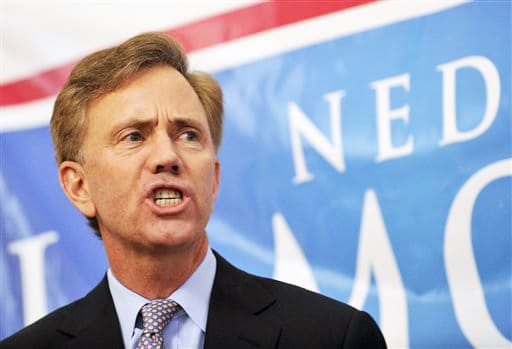
Religious beliefs may no longer excuse children from vaccinations in Connecticut, following several outbreaks earlier this year.
Gov. Ned Lamont proposed on Monday that all children medically capable of receiving vaccinations for preventable diseases be required to do so in order to attend public school. He cited a Department of Public Health report indicating that the number of parents claiming religious exemptions in the past year is at the highest level since Connecticut starting collecting that data a decade ago. Lamont also noted that high vaccination rates result in “herd immunity,” which protects both vaccinated and unvaccinated children.
“When it comes to the safety and health of our kids, we need to take an abundance of caution,” Lamont said in a statement on Monday.
Lamont added that the legal change would not take away parents’ right to make medical decisions for their children. If they choose not to vaccinate, however, their children would not be able to attend public school.
In a Sept. 16 letter to legislative leaders, Department of Public Health Commissioner Renée Coleman emphasized the importance of “herd immunity” in schools. According to Coleman, “medically fragile” children such as those undergoing chemotherapy cannot receive vaccines and are therefore especially vulnerable to certain diseases.
“They depend on herd immunity for their health and their lives,” the letter read.
Coleman also reported that before a measles vaccine became available in 1963, roughly 3 to 4 million Americans were infected each year. Among these, around 400 to 500 died and around 48,000 were hospitalized.
The Center for Disease Control declared measles eradicated in 2000. But several recent outbreaks — including in Disneyland in California — have contributed to the country’s highest infection count since 1994. As of Sept. 12, there have been 1,241 cases nationwide since the start of 2019.
In response to the outbreaks, several other states have passed laws ending religious exemptions, including California, Maine and New York. West Virginia and Mississippi, on the other hand, have ended all nonmedical exemptions. Forty-four states have laws allowing religious exemptions for vaccines, according to the Pew Research Center, while Minnesota allows for all moral exemptions without specifying religion.
According to current Connecticut law, parents and guardians can fill out a form for either a medical or religious exemption for required vaccinations. The form specifies that if a preventable disease outbreak occurs at a school, all susceptible children will be excluded from school until the outbreak ends, the infected child has recovered from the disease the child has been vaccinated, or the child can prove immunity to the disease.
The kindergarten immunization rate for measles, mumps and rubella declined from 96.5 percent in the 2017–18 school year to 95.9 percent for the 2018–19 year, according to the Connecticut Department of Public Health. The number of religious exemptions claims increased from 2.0 to 2.5 percent in the same year.
Legislative leaders praised the proposal during a Monday press conference in Hartford.
“This is not a religious issue,” said Senate President Pro Tempore Martin Looney, D-New Haven. “It’s a public health issue.”
Some vaccines — including those for measles, mumps, rubella and chickenpox — contain gelatin, which is derived from pigs. Although many Jews and Muslims do not consume pork for religious reasons, some Jewish and Muslim religious leaders have deemed the vaccines permissible.
But some parents still have other concerns.
MaryJo Perry, the president of Mississippi Parents for Vaccine Rights, expressed concern that drug companies cannot be held liable if vaccinated children are injured or killed.
“We have a product that is mandated on tiny babies that is liability-free. I don’t think it’s a conspiracy to hurt anybody, but the bottom line is money,” Perry told the News. “Parents need to have the ability to stand between this big corporate interest and their tiny, vulnerable baby.”
Connecticut has had three measles cases this year.
Nathalie Bussemaker | nathalie.bussemaker@yale.edu
Interested in getting more news about New Haven? Join our newsletter!







